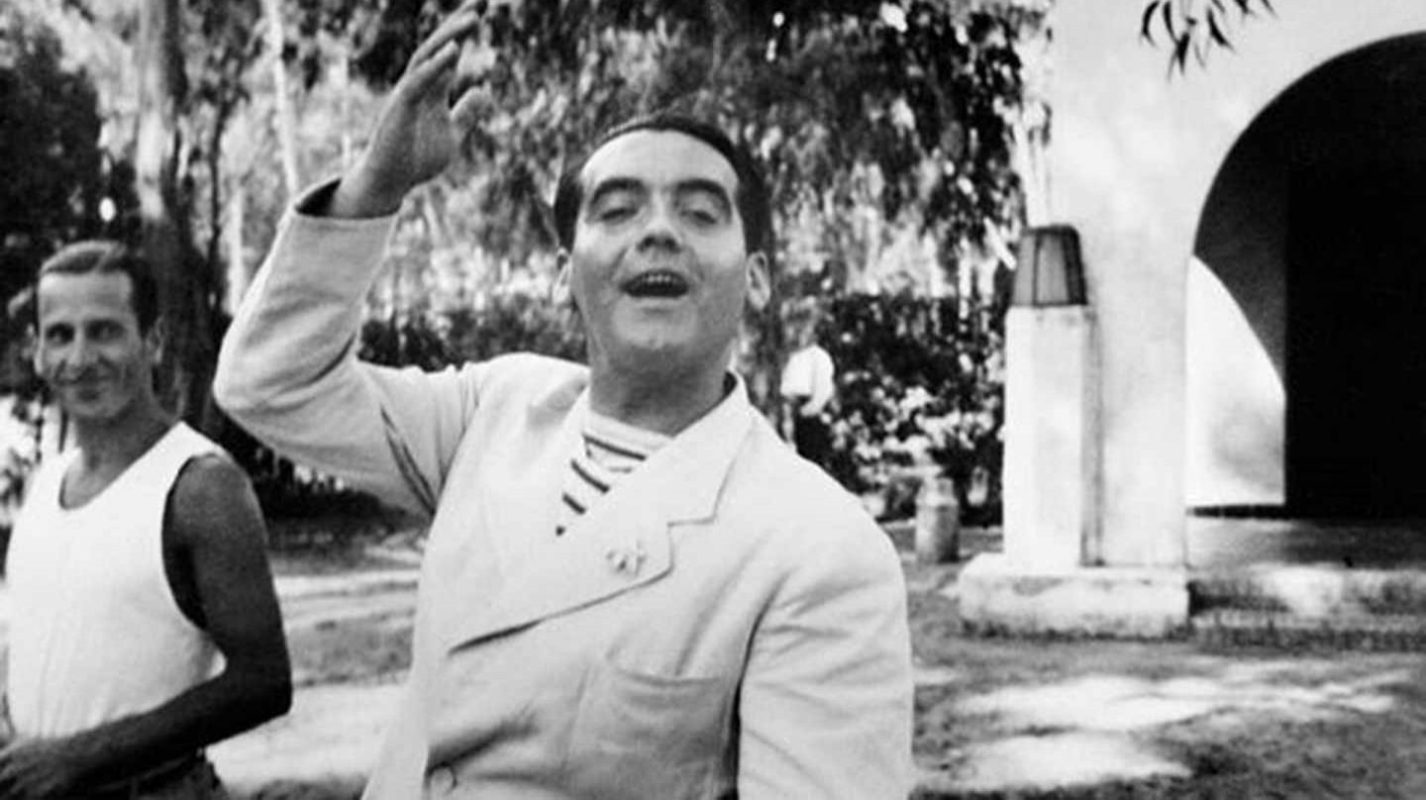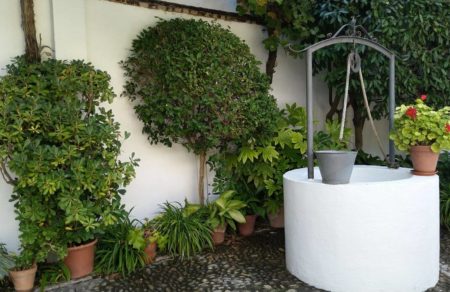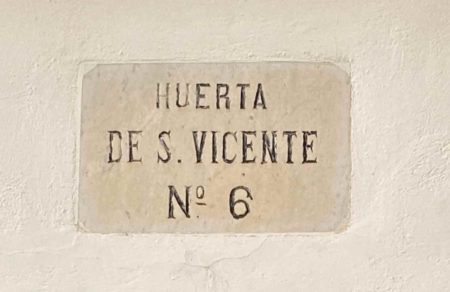
September 1931. The launch of the first Public Library in Fuente Vaqueros, a town in the Vega de Granada.Federico García Lorca, the most international poet at the time and born in Fuente Vaqueros, began his speech, choked up “First, I should tell you that I don’t speak, I read”. That’s how he began one of the most beautiful speeches ever given. Hearing the first tremble in the voice of a poet with plenty of experience in recitals and presentations is truly moving. All this experience is no longer relevant when speaking before your community,erecting a building which represents the only thing you believe in. “Books! Books! A magic word that’s synonymous of “love, love”.
During the vibrant speech, Federico defended the power of literature and culture in the development of both civilization and individuals:“We don’t just live off bread. If I were hungry and helpless out on the streets, I wouldn’t ask for a loaf of bread. Instead, I’d ask for half a loaf and a book […] All people should eat, but all should learn […] because otherwise, they’ll be turned into machines.
In these fantastic words, Federico summarises his entire legacy, his life goal and the objective of a whole generation: to bring happiness and culture to Spain in order to aid its modernisation and raise it to the same level as the rest of Europe.On the 83rd anniversary of his execution, the best homage we could pay him is remember his very words.
Federico García Lorca and culture
Our universal poet was born in Fuente Vaqueros, a town located in the Vega de Granada.Despite coming from a more well-off family, he enjoyed the company of the maids and townspeople. In fact, his education was very closely linked to the voice of his mother Isabel, who read to him and the maids aloud when he was a boy. Perhaps, it also drew on their silence, as they too listened to his mother read. Over time, young Federico learned to read, but the majority of the poor people remained illiterate.
The poet and playwright was unusually wise and knew that men and women have an innate desire to discover and learn, but no resources. That’s why with the establishment of the Republic, he embarked on a stunning project called La Barraca. It was a university theatre group that would take classic works to towns, to the poorer communities.To those who “unfortunately cannot enjoy the glorious beauty that is life, kindness, serenity and passion”, he stated in the speech he gave at the launch of the public library in his hometown.
Federico García Lorca had lived alongside this hunger to learn, a hunger that still remained even outside his home. During his youth, he travelled around the most rural areas in Spain, where he discovered that for many, life was a space between life and death and between both, there was only work and misery.An existence that he himself defined that day in September 1931: “dead like a mill that doesn’t grind, dead because it isn’t loved, no idea, nor faith, nor freedom, essential for any man if they are to call themselves a man.
The launch of the library represented the revitalisation of his hometown. “That’s why I feel so satisfied at this time and to those who are lucky enough, please help this opening by giving money towards buying books, as obliged, as their duty. To those who don’t have the means, come and read, feed your intelligence as the only means for your economic and social freedom. He did the same, requesting books from the Residencia de Estudiantes from Madrid, where he studied and from editorials.
Federico García Lorca is still alive
The Granadian poet compared death with a “mill that doesn’t grind”. If this is true, if life is “artistic sentiment and feelings of joy”, we can say that Federico García Lorca lives on and despite his execution by fascism, he still remains the driving force of a silent revolution in the form of books and culture: “not the army, nor gold, nor flames can fight them. You can create a piece, but you can’t behead those who have learned from it, because there are thousands and if there are a few, you ignore where they are”. For CICERONE and all those who love Lorca’s work, these works are a beacon, because the renewing spirit he wished to spread is present in each and every one of us. Get to know this Private tour to the places of Federico Garcia Lorca in Granada.
Experience tells us we’re not alone.People from across the world and of all ages come to Granada each day with Federico García Lorca in mind. His theatrical works are still reinterpreted in many countries, his poems recited and sung… his love for life and every living thing, for the marginalized, gypsies, black people, butterflies and bumblebees has now reached all corners. Conscience is still being worked and reworked. It makes us want to be better, work more generously: “we don’t work for us, but for those who follow”, “selfishness means sterility”.
For us, it’s an indescribable honour and pleasure to be the mediator between the voice of the poet and those who want to come and visit us. We feel as though we form part of his cultural awareness project for those who wish to learn. We also feel very proud to be able to do this in his particularly unique city, Granada (Things to do in Granada) which he knew how to interpret so well.
Now it’s our turn to reinterpret and give value to Granada’s culture. Every day we tell people who we’ve been and we’re developing a better and happier “who we are” and “who we will become”. In the words of Federico García Lorca “where there is ignorance it is easy to confuse bad with good and truth with lies”. Each day we head out onto the streets of our beloved Granada, happy to be part of a much bigger project: bringing culture to those who go in search of it and injecting life into the streets of Granada.



